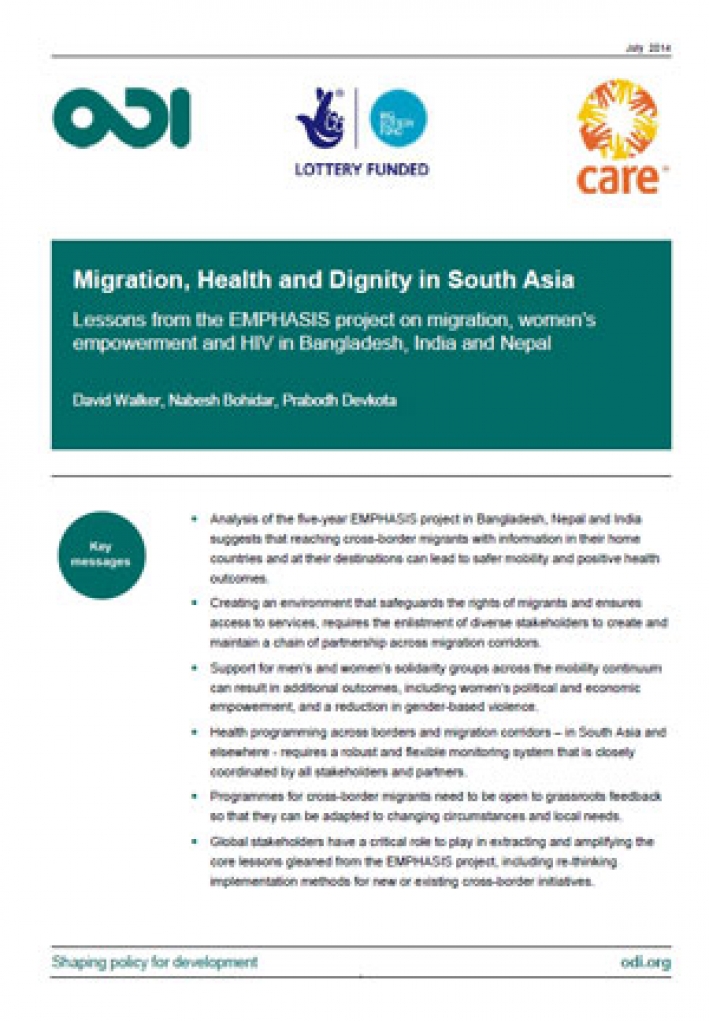Other key findings include:
- Creating an environment that safeguards the rights of migrants and ensures access to services, requires the enlistment of diverse stakeholders to create and maintain a chain of partnership across migration corridors.
- Support for men’s and women’s solidarity groups across the mobility continuum can result in additional outcomes, including women’s political and economic empowerment, and a reduction in gender-based violence.
- Health programming across borders and migration corridors – in South Asia and elsewhere - requires a robust and flexible monitoring system that is closely coordinated by all stakeholders and partners.
- Programmes for cross-border migrants need to be open to grassroots feedback so that they can be adapted to changing circumstances and local needs.
- Global stakeholders have a critical role to play in extracting and amplifying the core lessons gleaned from the EMPHASIS project, including re-thinking implementation methods for new or existing cross-border initiatives.
Authors: David Walker, Nabesh Bohidar, Prabodh Devkota


